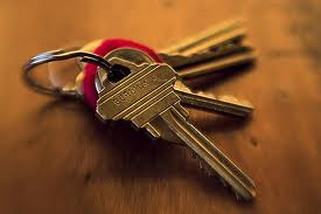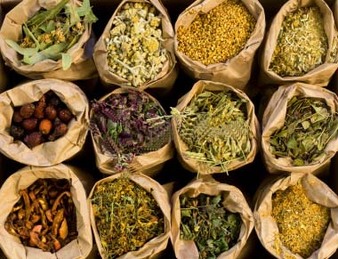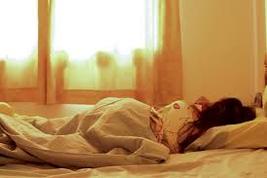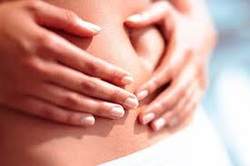I don’t know whether it was food poisoning or that yucky gastro bug going around, but it felt dreadful! However, it lasted a fraction of what it could have, thanks to some herbs, some rest, and even some TV (I know, shocking!).
When I went over the last week step by step, I could see the warning signs and how I’d ignored them. Read on for the five big lessons I learnt from the whole experience that could help you avoid experiencing the same thing I did, starting with lesson number one...
Listen to the warning signs.

I noticed I was losing my keys over and over again. Locking them in the car, finding them in obscure places after hunting for ages, and getting really frustrated in the process. Picture me after teaching my final yoga class of the day, crying and screaming whilst lying under my Dad’s land cruiser for twenty minutes trying to undo the spare key in pitch black, while my mum waited for me to pick her up from the train station! I was stressed out and it was giving me the memory of a guppy.
Stress triggers our brains to release hormones, like cortisol, which affect the memory and cognitive function section of the brain. The over-stimulus caused by these hormones overloads the memory part of the brain, which causes us to forget things. Temporary memory loss can also be caused by multi-tasking, which many of us do to "stay ahead" in our busy lives. I for one am guilty of multi-tasking, thinking I’m being more productive when really I’m just making myself unmindful and stressed out!
When we are carrying on a conversation on the phone as we walk into the house, and planning what to cook for dinner at the same time, we aren’t paying attention to where we are simultaneously putting down our keys. Our brains don't store data well when we’re not paying attention to something in the first place. Brains are designed to do one task at a time. We are not computers and when we try and behave as if we were, our brains refuse to co-operate and forget things.
Exercising daily, eating healthily, getting plenty of sleep and practising mindfulness all help maintain a healthy brain, producing more neurotrophins, essential transmitters to enhance nerve connections within the brain.
Herbs are king.

Being in no state to self-prescribe herbal remedies, my herbal-wizard boyfriend Andreas took great pleasure in concocting strong and slightly disgusting brews of thyme (anti-microbial and carminative) and peppermint (calming for the gut), and making gel capsules of powdered pau d’arco (antimicrobial, analgesic) and echinacea (immune boosting) for me.
Sure enough, my every-minute stabbing gut pain became less frequent and less intense, and I recovered in record time. The power of herbs never ceases to amaze me. (This further fuelled my desire to study naturopathy in the second half of this year!) I also managed to get some sleep. A lot of sleep…
Rest is golden.

Once I was sick, all I wanted to do was lie in bed. Sleeping during the day is something I rarely do because of a misguided belief that it’s lazy to be in bed when the sun is out. How ridiculous of me to think that!
I was in bed for all of Wednesday – except when some unsuspecting but lovely Jehovah’s Witnesses came knocking and on seeing the state I was in, offered to come in and make me some tea. (With my about-to-hurl sounds they were only at the door for two minutes, which must be some kind of record.)
Listening to my body by staying in bed all day was possibly the best thing I did. I woke up on Thursday feeling refreshed and better than I did before I got sick! I enjoyed some hula hoop yoga in Andreas' sunny backyard, feeling grateful to be alive. Rest truly is a powerful healer. And it gave me a chance to watch a little TV, another thing I’ve avoided for the past 12 or so years…
TV is not (always) evil.

I normally shun television but I managed to find a few English game shows on ABC and SBS that felt like they weren’t killing brain cells. Plus Masterchef was pretty enthralling!
I now understand why people are drawn to TV – it’s a distraction, and when you’re in (any kind of) pain, distraction isn’t necessarily a bad thing. It’s still not something I’d want to use as a long term coping mechanism, but it helped. And as I lay there staring at the idiot box, I started to realise that…
Having healthy digestion is a blessing.

Living with that kind of pain day in and day out is hard to imagine, yet it’s something many of my clients and closest friends do every. Single. Day. Having healthy digestion, and having general health, are a blessing, something to be deeply grateful for, rather than take for granted.

































 RSS Feed
RSS Feed



